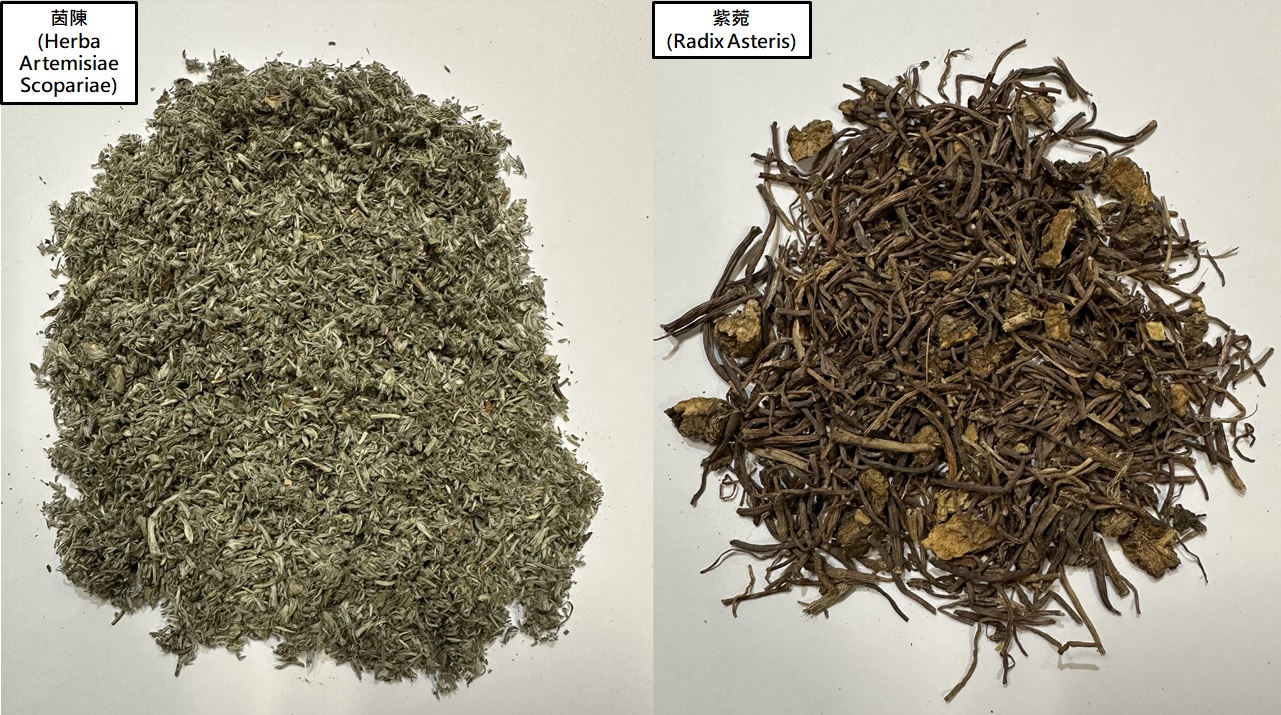The Department of Health (DH) today (August 4) received the testing results from the Government Laboratory, revealing that the pesticide residues of two batches of Chinese herbal medicines (Chm), Radix Asteris (紫菀) (batch number: C22408200) and Herba Artemisiae Scopariae (茵陳) (batch number: 241201), exceeded their limits during the DH's market surveillance.
The batch of Radix Asteris was imported by a licensed Chm wholesaler Zheng Cao Tang Medicine Hong Kong Company Limited (Zheng Cao Tang), from the Mainland for local sale. Testing result of the sample revealed that each kilogram of Radix Asteris (batch number: C22408200) contained 0.53 milligrams of Phorate, exceeding the limit set by the Chinese Medicines Board of the Chinese Medicine Council of Hong Kong (each kilogram of Chm should not contain more than 0.02 milligrams of Phorate). The batch of Herba Artemisiae Scopariae was imported by a licensed Chm wholesaler China Red Pharmaceutical Group Holdings Company Limited (China Red) located at the same address, from the Mainland for local sale. Testing result of the sample revealed that each kilogram of Herba Artemisiae Scopariae (batch number: 241201) contained 0.13 milligrams of Carbofuran, exceeding the limit set by the Chinese Medicines Board (each kilogram of Chm should not contain more than 0.05 milligrams of Carbofuran). DH has immediately requested Zheng Cao Tang and China Red to recall the respective batches of Chm from the market.
“Based on the level of pesticide residues detected in the samples, the risk of adverse health effects under consumption for treatment of diseases is low. So far, no adverse reports related to the use of the above Chm have been received. Investigations are ongoing,” a spokesman for the DH said.
The spokesman added that Chm should be rinsed under running water before decocting to remove the dirt on the surface and to ensure the cleanliness of the Chm. Chm should also be soaked in water before decoction.
According to the Chinese Medicine Ordinance (Cap. 549), both Radix Asteris and Herba Artemisiae Scopariae are Schedule 2 Chm. Radix Asteris is the root or rhizome of Aster tataricus L.f. used to moisten the lung, direct qi downward, resolve phlegm and suppress cough, while Herba Artemisiae Scopariae is the aerial part of Artemisia scoparia Waldst. et Kit. or Artemisia capillaris Thunb. used to clear and drain dampness-heat, disinhibit gallbladder and abate jaundice.
Zheng Cao Tang and China Red have set up a hotline (2857 6600) for related enquiries. The DH will closely monitor the recall.
The DH urged members of the public who have purchased the above Chm to stop using them immediately and may submit them to the Chinese Medicine Regulatory Office of the DH on 16/F, AIA Kowloon Tower, Landmark East, 100 How Ming Street, Kwun Tong, during office hours for disposal. People who have taken the above Chm and feel unwell should seek advice from healthcare professionals.
Chinese Medicine Regulatory Office
4 August 2025
